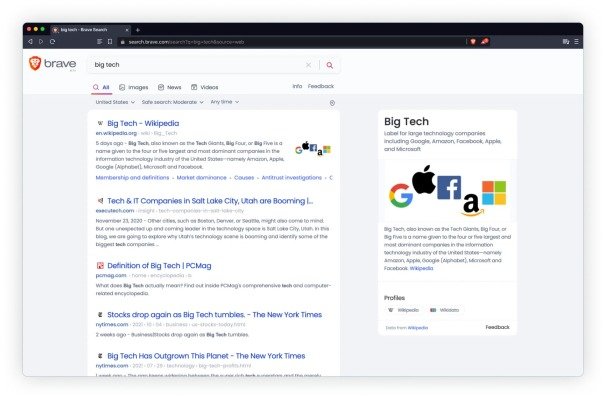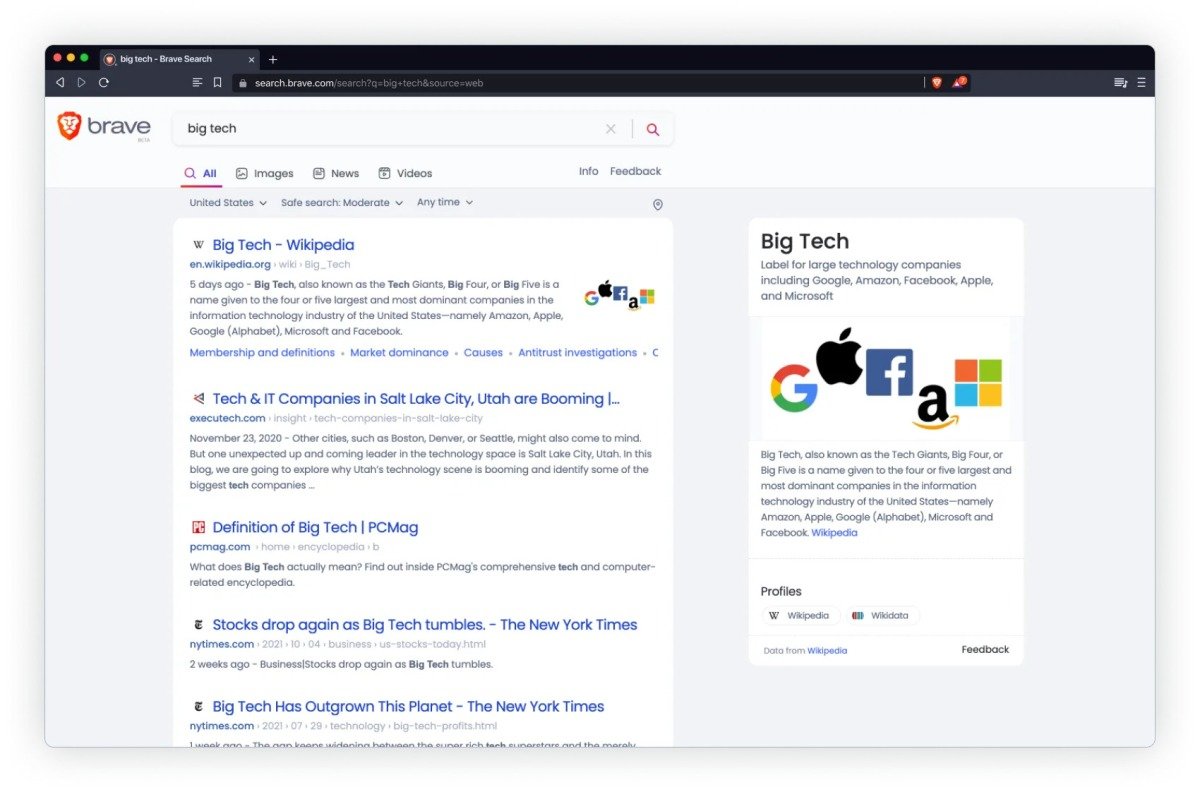
Brave just announced that it is now exclusively using its own index for its search engine. This change will make it more efficient and relevant, since there will be fewer interference factors. Additionally, the new index allows for more personalized results delivered directly to users’ browsers.
Brave’s reliance on external providers for nearly one-tenth of its search queries was a strategicy that the company announced it would be transitioning away from in 2021. According to data from Sensor Tower, this change has resulted in a drastic reduction in the number of queries that Brave requires fellow third-party providers to answer. As of July 1st, only 7% of all Brave queries were handled by these outside entities.
Brave is introducing a new way for users to search the web – by completely relying on the Brave Index. This means that users will receive 100% of results from the Brave Index, which should give them more independent and trustworthy results than they would get from a traditional search engine.
Brave is concerned that Microsoft may eventually charge more for its Bing index, making it difficult for web browsers to fund their own searches. In response, Brave has started working on self-reliance by funding its own search index using data donated by users of its web browser.
One potential downside to Brave’s new search engine is the fact that users will still be able to use Google Fallback Mix. This feature allows users to privately query Google in case Brave Search doesn’t have answers, which could lead to confusion for some.
Brave says that it plans to release a search API for its platform in the future. This would let third-party developers create applications that can find specific content on Brave’s web and mobile platforms. This could be an interesting way to make browsing content easier and more centralized, which could appeal to users looking for a more streamlined experience.
One of the ways Brave is hoping to set itself apart from other big tech companies is by focusing on its own solutions rather than relying on those from larger companies. In March, the company debuted a summarization feature that wasn’t powered by OpenAI’s technology. This move shows that Brave isn’t afraid to forge its own path and try new things – something that may be attractive to some users who are tired of the same ol’ same ol’.
Brave has been praised for its privacy features, which make it a popular choice for tech-savvy individuals. However, it is also known for being slow and having some Compatibility issues with certain websites. Despite these criticisms, it remains one of the more popular options when compared to its competitors.








